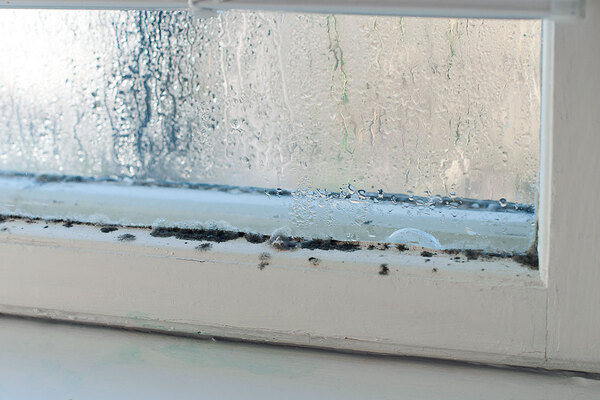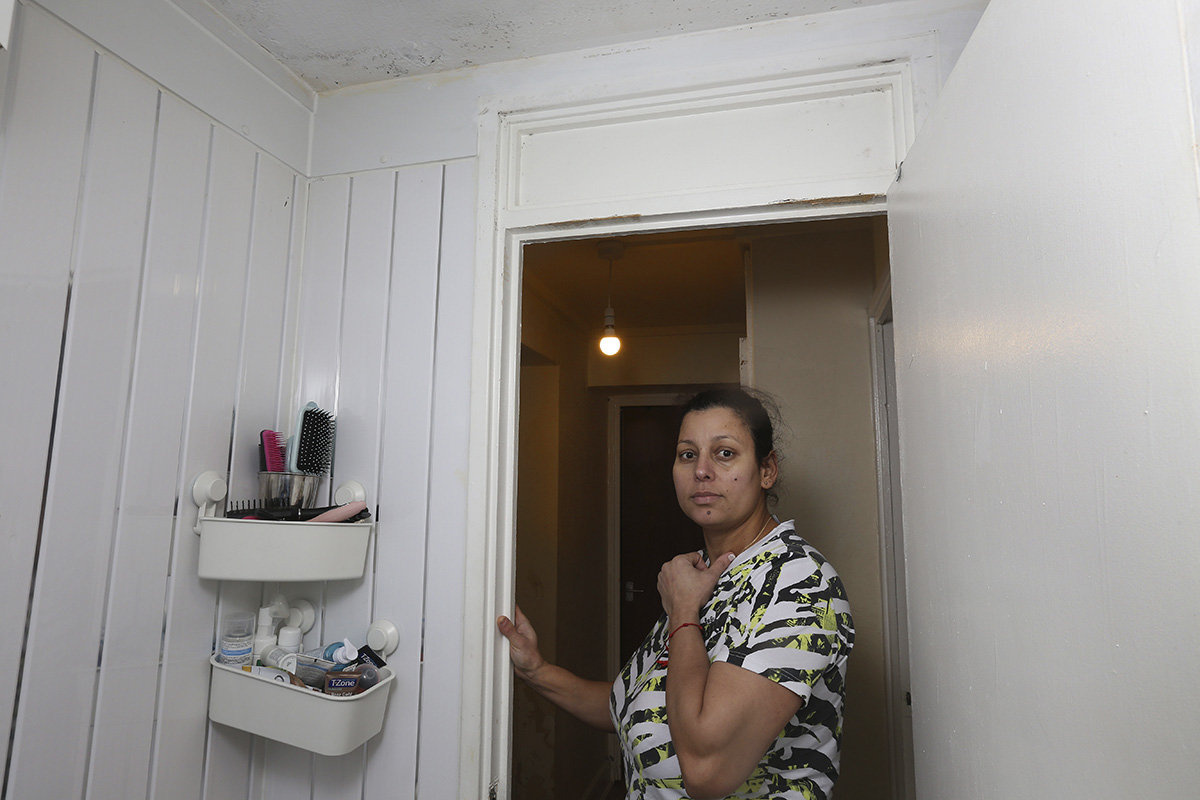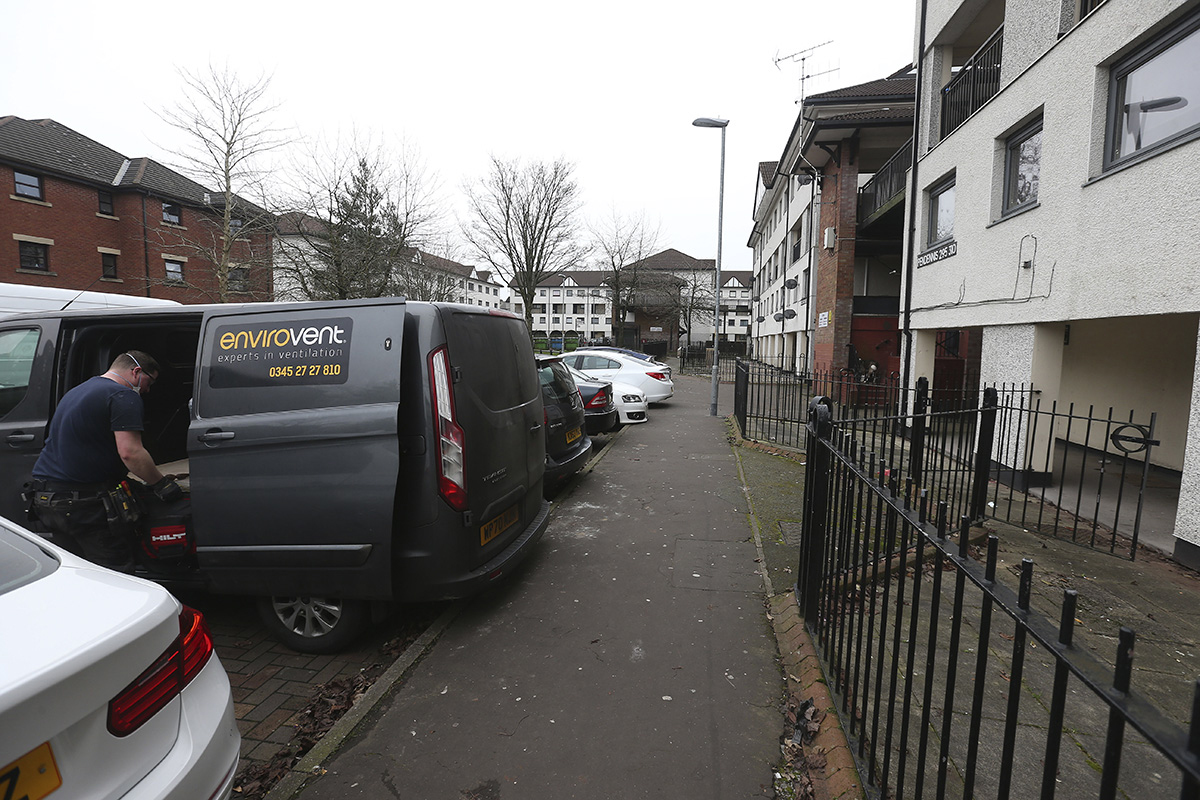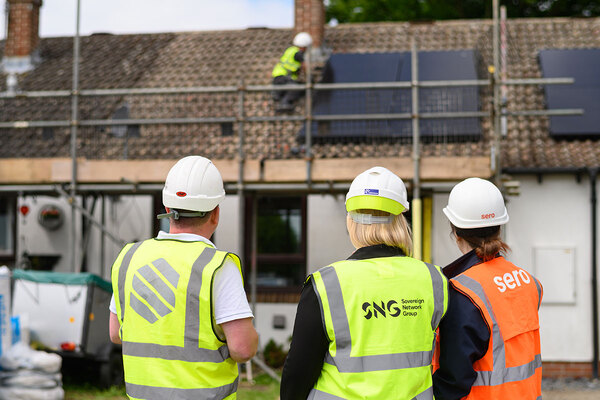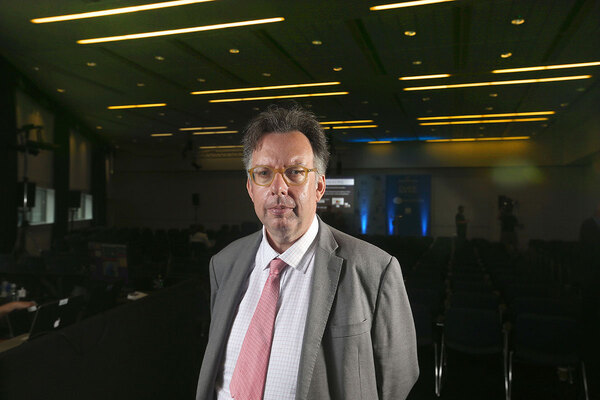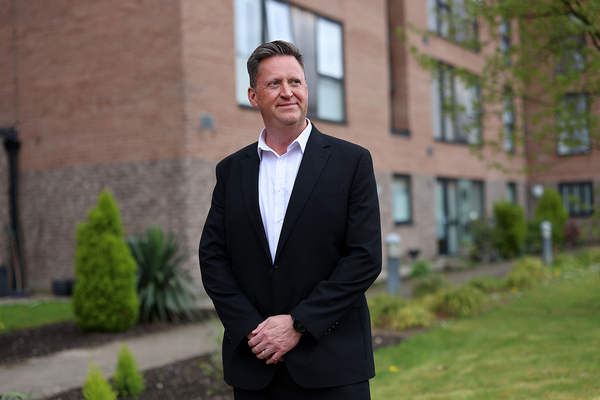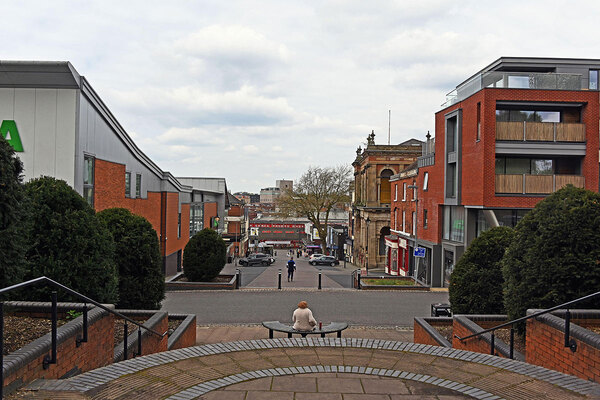Ombudsman special report: ‘Dehumanisation’, ‘othering’, and pattern of ‘exclusion and marginalisation’ found at RBH
A culture of “othering” residents “lies at the heart” of the issues in Rochdale Boroughwide Housing (RBH), an investigation by the Housing Ombudsman has found.
In a scathing special report on the housing association whose lack of action led to the death of two-year-old Awaab Ishak, the watchdog found a pattern of “exclusion and marginalisation based on identities that are different to norm” and a “dehumanisation” of residents, all of which was exacerbated by an “extremely poor data culture”.
The report revealed negative attitudes towards people of different cultures. In one instance, when a worker reported to her manager that residents were complaining about mould and living conditions regularly, she was told that it was “OK and acceptable”, that “most of residents were refugees and… they are lucky they have [a] roof over their head”.
In another instance, a vulnerable tenant was evicted without due process and her belongings disposed of by RBH.
Another resident was given the wrong tenancy end date, and RBH locked her out and threw out her belongings, including her parents’ ashes.
“The resident is turning to the landlord for help and the dehumanisation of residents because of deadlines, targets, waiting lists or personal bias has no place in a modern social housing sector,” the report concluded.
The ombudsman launched the investigation into RBH following the inquest into the death of Awaab, who died as a result of prolonged exposure to mould in one of the landlord’s flats.
Awaab and his family were failed in several ways: RBH did not address their concerns about their living conditions, later admitting that it had blamed the disrepair in the flat on their “lifestyle”, while poor record-keeping meant that some people were unaware a child and pregnant woman were present.
Following the inquest in November, the ombudsman sped up three RBH cases and launched the wider probe.
As part of the investigation, it reviewed 20 complaints it had determined in the four financial years up to October 2022, as well as complaints referred from November to assess the efficacy of changes being made by RBH.
There were nine live investigations into RBH in December 2022. The ombudsman made 15 findings across the cases and found maladministration in 10 of them – a rate of 67% – and three severe maladministration findings.
It ordered RBH to pay more than £8,000 in compensation to residents and make five apologies.
“Our investigations have highlighted that culture change, from top to bottom, is needed to rectify the situation and it is clear that the leadership is determined to lead from the front with the development of their recovery plan,” according to the report.
The report is divided into several themes, listed below.
Finding their silence
The ombudsman’s Spotlight report on damp and mould – It’s not lifestyle – asked landlords to “find their silence”, or those tenant voices that were not being heard.
However, its investigation found that RBH did “not go far enough” on this, specifically with regard to damp and mould cases.
RBH did an independent review in 2021 after Awaab died, but failed to survey the Freehold Estate where he lived until late 2022, when 80% of homes were found to have damp and mould.
The survey found that 12 properties had hazards so severe that they “posed a serious and immediate risk to health”.
“The disparity between the two responses raises concerns over the quality of the initial review, which appears to have been done by a leadership management company, focused solely on the Ilminster block on the Freehold Estate, and was conducted entirely by telephone because of the pandemic – the reviewer never visited the properties.
“The notes from the review often read as if the interviewer was ‘leading the witness’ – offering the members of staff answers to the questions they were asked, passing comments on the family, [eg] ‘it is likely they feel the cold of an English winter’ and making suggestions, such as ‘bucket bathing’, based on what other members of staff had said – the reviewer later confirmed this in a statement to the inquest,” the report states.
The ombudsman accepted that the review was “not legal in nature”, but said it “raises serious concerns” about the validity of some surveys which landlords undertake – “offering false, or distorted, assurance on which actions and resource are based”.
The watchdog said RBH is “unlikely” to be the only landlord that has made “crucial decisions based on flawed intelligence”.
RBH has surveyed the estate and is currently doing a programme of work, which is focused on improving ventilation.
But the ombudsman said there are other estates and families “that need and deserve additional support”.
It said most of the residents in touch were living in Middleton, with one woman reporting that her young son developed chest problems, which she believes was because of damp and mould.
Communication
The ombudsman looked at RBH’s communication on how it is tackling damp and mould.
Details are included in a news article on its website on RBH’s recovery plan, but they are “scant” and “strike an uneasy balance between too little information and too much detail”, it said.
“There are general points made about what the landlord will do to resolve a mould report, but then quite specific instructions to the resident about what they should be doing to prevent condensation forming – the emphasis on precautionary measures remains squarely on the resident,” the report stated.
The ombudsman also found a leaflet on damp, mould and condensation failed to provide pictures of what condensation looks like to make it accessible to people who cannot read English or need pictorial communications.
“Combined with the extensive list of guidance to residents to prevent condensation, including guidance that may not be realistic in the current cost of living crisis, the leaflet may perpetuate misunderstandings around condensation and mould, as well as roles and responsibilities,” it said.
RBH said it intends to produce a ‘managing condensation guide’, which will include video.
Treat residents fairly
Four months after Awaab’s death in December 2020, RBH submitted evidence to the ombudsman as part of its damp and mould Spotlight investigation.
In answer to what it considered to be the main cause of damp and mould, RBH said: “Tenants’ lifestyle, eg not heating the property adequately, insufficient use of ventilation provided, drying clothes and cooking in the home, not venting tumble dryers, ritual bathing.”
Another question asked whether a particular damp and mould situation led to significant changes in the way in which a landlord operates, and to give details.
The ombudsman said “most disturbingly, given it was only four months after Awaab’s death, [RBH said] we are looking into the fitting of shower screens and are currently piloting this approach, particularly linked to ritual bathing”.
It emerged during the inquest that RBH had made assumptions about the family based solely on the presence of a bucket in their home and their ethnicity.
During the 2021 review, members of staff were recorded by the reviewing team as saying:
“The lifestyle choices likely to be relevant here are ritual bathing…”
“…style of cooking by boiling food…”
“…Bucket bathing is quite common on the Ilminster Estate…”
“When people come to this country and go through the asylum process… everything is done for them in terms of cleaning and so they expect it when they are moving into accommodation and that they can call housing services to come a[nd] clean the place for them.”
“The issue appeared to be the style of cooking… and the style of bathing.”
“The family used a style of bathing known as bucket bathing, which is common to their culture as it is part of their culture and practice.”
“The lifestyle choices were likely to be bucket bathing and the tenant’s cooking practices…”
“...dealt with a great many similar claims… maybe tenants with such ritual practices…”
The ombudsman said that these “are all othering statements” that demonstrate the family were not “seen” at all – “their entire treatment was based on assumptions as to who they were and how they lived”.
“Combined together, it paints a disturbing picture of residents being judged entirely by staff members’ held prejudices, lazy assumptions and an attitude towards asylum seekers and refugees that is wholly unacceptable,” it said.
The watchdog said its investigation found that the “dismissive and discriminatory” attitude towards residents revealed at Awaab’s inquest was “not restricted” to his family’s experience.
Its report included several case studies. RBH dismissed one family’s concerns about damp and mould as them wanting “to get a bigger house”.
In another case, a resident had suffered a brain injury and said she felt bullied and intimidated by the landlord when it failed to respect her requests for specific contact methods.
“She also told us that they responded to her reports that someone was in the empty flat upstairs by suggesting that she ‘must be hearing things’ because of her brain injury,” according to the report.
The ombudsman said: “Although we recognise that the number of staff involved in the inquest was relatively small, and long service does not in itself result in such behaviours, there would appear to be a direct correlation between the length of service with the landlord and the level of ‘othering’ and disrespect shown in the evidence submitted to the inquest.”
Record-keeping
Following an investigation by the Regulator of Social Housing (RSH), it emerged that RBH breached the Home Standard over issues with its IT system and “poor communication” across the organisation.
The association used numerous different IT systems and not everyone who had contact with the family had access to the same information.
It meant that details about Awaab’s presence and his mother’s pregnancy were not included on the same system accessed by the repairs service.
The ombudsman’s investigation revealed that in late 2020, RBH migrated its computer systems and emails to new software and lost the majority of previous emails from their servers forever.
This destroyed any audit trail for cases wrongly handled by email completely.
Prior to that, emails were automatically deleted after two years and RBH only backed up emails for six weeks because of space constraints.
“Over-reliance on this method to appropriately manage services to residents is undoubtedly one of the reasons service delivery successes are ad-hoc at best,” the ombudsman said.
Its report included a case study involving a resident who was given the wrong end date for her tenancy.
RBH had realised that it had given her the wrong date but did not contact her to let her know.
She had partially moved out and returned to remove the remaining belongings to find the landlord had changed the locks and had removed and disposed of her belongings, including her parents’ ashes.
“The landlord had kept no records of what they had removed and relied on assertions that they would have kept things like ashes to one side,” according to the report.
Empowering staff
The ombudsman’s investigation found that RBH staff did not have the sufficient training to explore reports of damp and mould with residents, make the right decisions on how to handle damp and mould reports “nor the empowerment to challenge appropriately if they did not consider the proposed response to be the appropriate one”.
RBH said it intends to set up training programmes centred around diagnostic and problem-solving skills.
It has also reviewed its contact centre capacity, staffing and skill sets, as well as the scope and delivery of the out-of-hours service.
In its casework, the ombudsman found instances of the wrong specialist being sent to a repair.
In one case, a plumber was sent when a drainage team was needed, resulting in the resident’s home being flooded by bathroom waste water.
During the ombudsman’s investigation, it was approached by current and former members of staff from RBH who wanted to share their experiences and opinions on the landlord’s attitude towards residents.
The ombudsman said it was “clear” that some staff did not feel comfortable raising their issues through the whistleblowing process in place within RBH.
RBH said it intends to regularly communicate its whistleblowing policy to encourage a culture of ‘calling out’ where staff have concerns.
It said it is also providing specific equality and diversity training that includes confidence building to empower staff to challenge when they feel “policies or procedures and a process-driven culture” has overtaken doing what is right.
Damp and mould strategy
The ombudsman found that RBH has improved its approach to damp and mould within its publications, but said “putting the changes into practice will be vital”.
RBH does not have a damp and mould strategy, but said it intends to have a policy in place by April.
It set up a damp and mould taskforce in December, made up of seven inspectors.
However, the ombudsman raised concerns that the level of training the group has received is not specialist enough.
RBH also said it is exploring the installation of humidity sensors in homes that have repeated reports of mould or damp, and is considering supplying hygrometers to residents to allow them to monitor and address humidity in their homes. It also assesses ventilation.
It has also commissioned a wholesale review of its repairs service.
Organisational learning
The ombudsman said that until the inquest, RBH “did not show a strong ability to learn from its mistakes or take opportunities to improve from them”.
It looked at the learning review RBH submitted to the coroner for the inquest.
According to the ombudsman: “The review concentrates entirely on barriers to information sharing and knowledge retention – it is entirely focused on how to improve the process, with limited lessons on how to improve customer service and no recognition of the duty of care it failed to provide Awaab’s family.
“This reflects the prevailing culture that we have found throughout our investigation of the landlord – a process-orientated culture that has completely lost sight of the people at the heart of the service it provides.”
RBH conducted another learning review after the conclusion of the inquest.
“Only then did the landlord look at what more it could do to support the people reporting mould to them and what it needs to do to remove the blame language from the conversation,” the ombudsman said.
The watchdog has made several recommendations to RBH following its investigation, which are all listed below.
A response to the report from RBH is also included below.
Recommendations
Within three months of this report, the landlord should publish and provide the ombudsman with details of the following:
2023 lessons learned review
The outcome of the 2023 lessons learned review that will examine:
- The events that led to and followed from Awaab Ishak’s death relating to the governance, risk, control and assurance processes and practices in place during this period
- Why the initial review of stock and data that was carried out after Awaab’s death in 2021 did not identify the damp and mould issues identified in 2022
- The action plan arising from that review
Damp and mould strategy
A dedicated strategy for handling damp and mould, including:
- Proactive prevention works that fully consider future net zero plans
- How disrepair claims will be handled within the existing framework
- Formal hazard assessments for every mould inspection
- A nuanced assessment framework for grading the severity of the mould found during an inspection that takes into account the proportion and the nature of rooms affected
- How damp and mould identified during the void process will be managed – this should be echoed in the void standard and policy
- Consideration of when a management move or transfer to alternative accommodation may be required, whether permanently or on a temporary basis while work is undertaken – this should be included in the relevant policy.
Guidance
- Separation of guidance to residents on how to report mould from guidance on how to maintain a healthy home
- Specific guidance to residents about how to access the complaints system and what the complaints system can do for residents as opposed to pursuing a disrepair claim, alongside targeted awareness-raising of the complaints procedure
- Review of guidance on maintaining a healthy home by a damp, condensation and mould specialist, in conjunction with residents, to ensure actions are realistic and achievable
- Consideration of additional community events and open surgeries to discuss condensation management methods, these should not just focus on estates where there are known damp and mould issues
Resident engagement
- A training programme of re-education for staff on courtesy and respect with regular refresher sessions
- An education programme about asylum seekers and refugees with regular refresher sessions
- Implementation and refresher management monitoring for these programmes
- Quality assurance processes to evaluate and ensure the learning from these programmes has made an impact and elicited change
Performance management
- A programme of exception reporting to management on data quality, including the data provided to the landlord by the local authority from (re)homing applications
- Feedback mechanisms for possible disciplinary action where record-keeping is found to be at fault, either through a complaint or through exception reporting
- Explicit reporting on follow-up inspections in line with the landlords six, 12 and 18-month inspection process – this should identify properties where appointments have not been kept, the reasons and any measures taken to resolve this, and this information should be reported to senior management and actions taken where required
Knowledge
- Prioritising a survey of all residents/tenancy audit to establish who is living in the homes, vulnerabilities and the presence of children
- The outcome of the stock conditions surveys and resulting action plan
- Plans put in place to frequently revisit this information, review and update it
Empowering staff
- A review of the ‘Eyes Wide Open’ campaign to be clearer on the triggers for reporting households to the campaign
- An addition to the objectives of maintenance operatives to proactively note who is living in the homes, signs of financial, emotional or physical distress and whether there are stock condition issues in evidence
- A review, including an anonymous staff survey, of the usage of the whistleblowing policy in the past five years to identify areas that are not being reported and why staff do not feel safe to raise their concerns
- A review of the job descriptions for all front-facing staff to ensure that customer focus and the landlord’s stated values are present throughout
- A review of the recruitment process for all front-facing staff to ensure that customer focus and the landlord’s stated values form the backbone of the testing process
Complaint handling
- An updated code and complaint policy
- Alignment of the planned governance reporting to our guidance note
- Creation of a ‘managing unacceptable behaviour’ policy that aligns with the ombudsman’s guidance on RBH’s website
- An updated self-assessment responding to all sections
- Accessible versions of the policies directly downloadable from the website
RBH response
Yvonne Arrowsmith, RBH interim chief executive, said: “We would like to thank the ombudsman service for its very thorough and balanced report.
“The findings in the report are sobering, but not unexpected. There has been significant learning following the tragic death of Awaab Ishak, which we acknowledge highlighted key failures within RBH.
“We have recognised that too often damp and mould was not seen as a serious issue and was often wrongly attributed to a resident’s lifestyle.
“At RBH we have taken significant steps since December 2022 to tackle damp and mould across our homes, but it is fair to say that this work should have started much earlier and that the scale of the issue in our homes means it will take us time to complete.
“We’ve set out clearly in our recovery plan how we intend to do this.
“The report also highlights concerns with the way in which residents were treated. Our residents have the right to be treated with respect and listened to and too often this didn’t happen. We are putting this right and have begun a culture shift programme across the organisation.
“There are wider lessons that we need to act upon, around the investment in our existing homes, and how this is balanced against the desperate need for more homes.
“The issue of overcrowding in homes has a detrimental effect in a lot of areas and is a significant issue within Rochdale, with insufficient family homes to move people into.
“However, this should not excuse us from working hard to deliver solutions, investigating the root cause of the damp and mould and taking prompt action to treat it.”
Sign up for our asset management and sustainability newsletter
Already have an account? Click here to manage your newsletters
Related stories

